Exploring Self-Hosted and SaaS-Based Package Sources in Azure DevOps
In modern software development, managing dependencies and packages efficiently is crucial. Organizations need a way to host, share, and consume packages securely and at scale. Package sources (repositories) can either be self-hosted or SaaS-based (Software-as-a-Service). Both approaches offer unique advantages depending on the organization's needs, security requirements, and infrastructure setup.
Let's explore self-hosted and SaaS-based package sources in detail.
1. Self-Hosted Package Sources
A self-hosted package source is a package repository that you manage and host yourself within your organization's infrastructure. This type of repository is typically run on your own servers or cloud infrastructure, giving you full control over the package management process.
Popular Self-Hosted Package Sources
Nexus Repository Manager (by Sonatype)
Description:
Nexus Repository Manager is one of the most popular self-hosted solutions for managing software artifacts. It supports many package formats, including Maven, npm, NuGet, Docker, and RubyGems.
Use Case:
Often used by large organizations or teams working in multiple programming languages that need secure, scalable, and customizable repository management.
Features:
Supports private repositories for internal packages and proxies for external repositories.
Allows integration with CI/CD tools like Jenkins and GitLab CI.
Built-in security features, including vulnerability scanning through Nexus IQ.
JFrog Artifactory (Self-Hosted)
Description:
Artifactory by JFrog is a powerful artifact repository that can be self-hosted or used as a SaaS service. It supports a wide range of package formats, including Maven, npm, Docker, Python (PyPI), and NuGet.
Use Case:
Frequently used by enterprises that need secure and scalable artifact management across different development teams and programming languages.
Features:
Offers advanced access control, replication between repositories, and fine-grained permissions.
Supports Docker container image management.
Seamless integration with CI/CD tools (e.g., Jenkins, GitHub Actions, GitLab CI).
Security scanning and vulnerability checks.
Azure Artifacts (Self-Hosted Option)
Description:
Azure Artifacts is a package management tool offered by Microsoft as part of the Azure DevOps suite. It is generally a SaaS product but can be configured and integrated in a self-hosted way within your infrastructure if you prefer.
Use Case:
Perfect for teams already using Azure DevOps or Microsoft tools within their development workflow.
Features:
Supports NuGet, npm, Maven, and Python packages.
Integration with Azure DevOps Pipelines for seamless package management.
Fine-grained permissions and access controls.
GitLab Package Registry (Self-Hosted Option)
Description:
GitLab offers a self-hosted solution for managing package dependencies, called the GitLab Package Registry. It supports npm, Maven, NuGet, and Docker images.
Use Case:
Ideal for organizations that already use GitLab for version control and CI/CD, providing an integrated ecosystem for managing source code, issues, and dependencies.
Features:
Integration with GitLab CI/CD for seamless automation of build and deployment pipelines.
Supports both private and public repositories for different types of packages.
Fine-grained permissions and access control.
Verdaccio
Description:
Verdaccio is an open-source, self-hosted lightweight npm proxy registry that allows you to easily host your own private npm registry.
Use Case:
Ideal for small teams or organizations looking to host private npm packages with minimal overhead.
Features:
Simple setup and configuration, especially useful for small teams or startups.
Supports publishing and installing npm packages from the local registry.
Integrates with existing npm workflows.
Advantages of Self-Hosted Package Sources
Full Control:
You have complete control over package access, versioning, and updates. You can also dictate the security and compliance policies for your organization.
Security:
Sensitive or proprietary packages can be securely stored within your organization’s infrastructure, reducing the risk of leaking data or dependencies to public repositories.
Customization:
You can configure the repository to match your specific needs, such as enforcing custom versioning rules, access control mechanisms, or specific integration with your CI/CD pipelines.
Compliance:
A self-hosted package repository gives you full control over the data and compliance policies for the packages, ensuring they meet your organization's regulatory requirements.
2. SaaS-Based Package Sources
A SaaS-based package source is a package repository hosted and managed by a third-party provider. These repositories are accessed over the internet and typically offer convenient subscription-based pricing models, high scalability, and minimal setup requirements.
Popular SaaS-Based Package Sources
GitHub Packages
Description:
GitHub Packages is a SaaS-based service that allows developers to host and share packages within the GitHub ecosystem. It supports multiple formats such as npm, Docker, RubyGems, Maven, and NuGet.
Use Case:
Ideal for organizations already using GitHub for source control, CI/CD, and project management.
Features:
Seamless integration with GitHub repositories and GitHub Actions for automating workflows.
Public and private repositories, offering fine-grained control over who can access your packages.
Built-in support for versioning and package management.
Azure Artifacts (SaaS)
Description:
Azure Artifacts is a fully managed package repository as part of the Azure DevOps suite. It supports npm, NuGet, Maven, and Python packages.
Use Case:
Best for teams already using Azure DevOps for project management and CI/CD workflows, offering a full cloud-based ecosystem.
Features:
Tight integration with Azure DevOps Pipelines for seamless CI/CD.
Secure access control and automated version management.
Free tier and flexible pricing for team-specific usage.
JFrog Artifactory (SaaS)
Description:
JFrog Artifactory is also available as a SaaS offering in addition to the self-hosted version. It is a powerful universal repository manager supporting many package formats, such as npm, Docker, Maven, NuGet, and PyPI.
Use Case:
Suitable for large enterprises needing a highly secure and scalable artifact repository with advanced features like security scanning.
Features:
Fully managed service with high availability, backups, and scalability.
Provides advanced security features, including vulnerability scanning and license compliance.
Integration with JFrog Xray for deep security and license checks on open-source components.
AWS CodeArtifact
Description:
AWS CodeArtifact is a fully managed package management service offered by Amazon Web Services (AWS). It supports package formats such as npm, NuGet, Maven, and Python.
Use Case:
Ideal for organizations that are already using AWS for their cloud infrastructure and DevOps workflows.
Features:
Tight integration with AWS tools such as CodePipeline, CodeBuild, and CodeDeploy for seamless CI/CD integration.
Fine-grained access control via AWS Identity and Access Management (IAM).
Automatic dependency management and versioning support.
Google Cloud Artifact Registry
Description:
Google Cloud Artifact Registry is a fully managed service from Google Cloud that allows you to store, manage, and secure your Docker, npm, Maven, and Python packages.
Use Case:
Best for organizations using Google Cloud Platform (GCP) and cloud-native tools, providing seamless artifact management.
Features:
Deep integration with Google Cloud tools such as Google Kubernetes Engine (GKE) and Cloud Build.
Secure access control and automated vulnerability scanning.
Easy integration into CI/CD pipelines with Google Cloud’s cloud-native tools.
Advantages of SaaS-Based Package Sources
Ease of Use:
SaaS-based solutions are easy to set up and use. Providers handle most of the infrastructure, maintenance, and security, so you don’t have to worry about managing servers.
Scalability:
SaaS solutions are generally built to scale effortlessly with your needs, whether your team is small or large.
Security and Reliability:
Leading SaaS providers often offer robust security features, such as encryption, automated backups, and compliance certifications (e.g., SOC 2, GDPR).
Integration with Cloud Ecosystems:
SaaS package sources are often tightly integrated with other cloud services, enabling seamless workflows for teams using cloud infrastructure.
Comparison: Self-Hosted vs SaaS-Based Package Sources
| Feature | Self-Hosted Package Sources | SaaS-Based Package Sources |
|---|---|---|
| Control | Full control over the environment and configuration | Managed by third-party provider |
| Security | Can implement custom security and compliance policies | Security features managed by provider |
| Scalability | Scalability depends on internal infrastructure | Auto-scalable depending on provider |
| Ease of Setup | Requires setup, configuration, and maintenance | Quick to set up with minimal maintenance |
| Cost | Typically requires infrastructure management costs | Subscription-based, typically more expensive as usage scales |
| Integration | Customizable integration with internal tools and workflows | Built-in integrations with cloud services, CI/CD tools |
| Compliance and Reliability | Full control over compliance and backup policies | Managed with built-in SLAs and compliance certifications |
Summary
Both self-hosted and SaaS-based package sources have their distinct advantages, and the choice between them depends on your organization's size, needs, and preferences.
Self-hosted solutions offer full control, flexibility, and the ability to tailor the environment to meet strict security or compliance requirements. These are best suited for large enterprises or teams with complex needs, but they come with the overhead of managing infrastructure.
SaaS-based solutions provide convenience, scalability, and security features with minimal setup and maintenance. They are ideal for teams looking for a fully managed solution with fast implementation, particularly if your organization is already heavily invested in a specific cloud ecosystem (AWS, Azure, Google Cloud).
Ultimately, the right choice will depend on your team's workflow, size, security needs, and whether you want to manage your infrastructure or leverage a fully managed service.




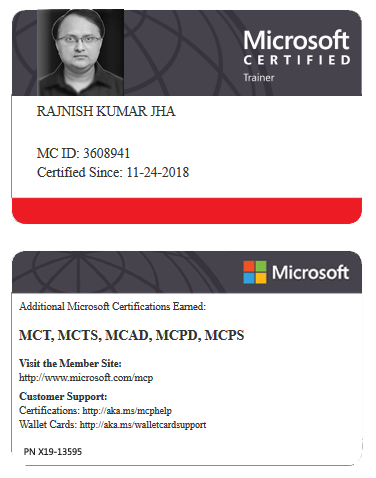
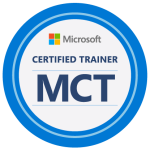
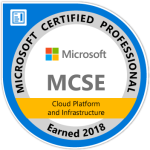
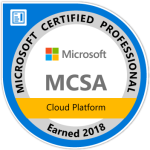
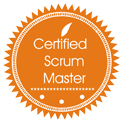
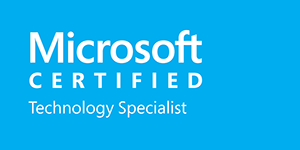

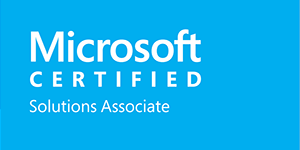
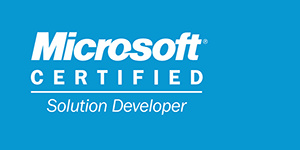
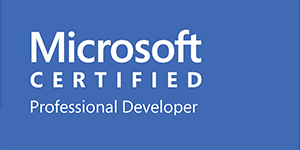

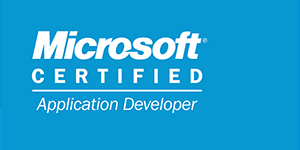
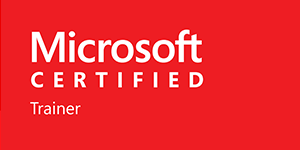





Leave a Reply